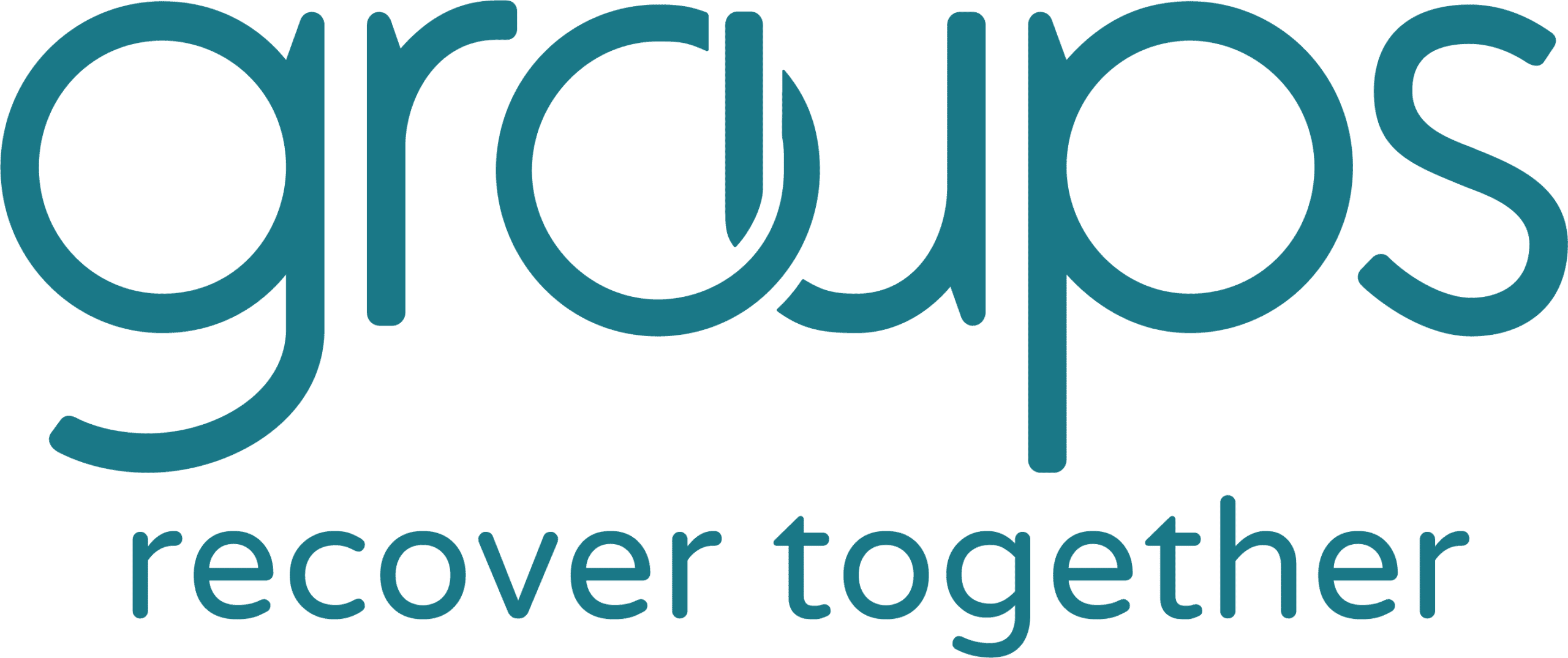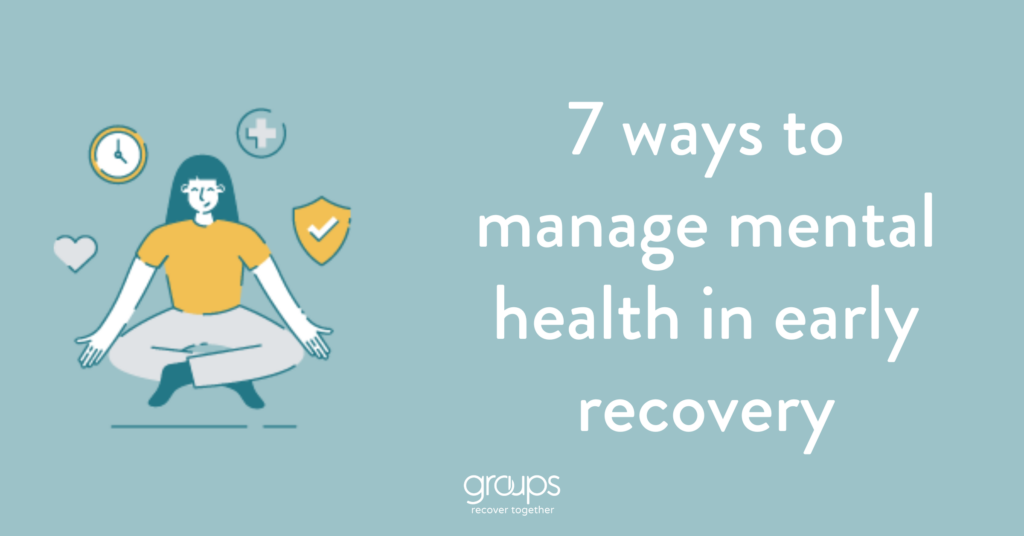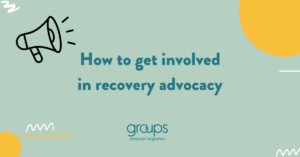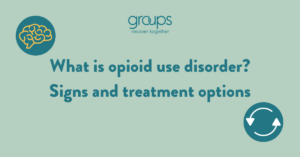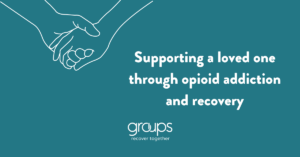Many people with substance use disorders also have mental health issues. These issues may feel bigger and more overwhelming when substances aren’t in the picture. That’s why taking extra care of your mental health is even more important in the early days of recovery.
So, what can you do to stay on top of your mental health in early recovery? We asked Groups team members across the country to share their recommendations.
1. Practice self-awareness.
“Supporting your mental health in early recovery can be as simple as being aware of thoughts, emotions, feelings, and finding healthy ways to cope with those aspects,” says Groups Member Access Clinical Supervisor Melanie Hayden, MSEd, LADAC II.
Coping strategies can include “therapy, medication, holistic avenues, exercise, meetings, sponsors, and maintaining a healthy routine and support system.” (More ideas in the next section!)
2. Build new coping skills.
Being in recovery opens up the chance to build new coping skills. Consider what feels supportive in the absence of substances.
Groups counselors recommend the following coping strategies:
- Using relaxation techniques: Practice relaxation techniques like deep and mindful breathing, guided imagery, or meditation.
- Engaging in self-care: Self-care can be as simple as showering or brushing your teeth. It can also be movement, creativity, or positive self-talk.
- Self-soothing: Pull out comforting items or images you can see, hear, smell, taste, and touch when you’re stressed. (Check out our holiday guide for ideas.)
3. Journal.
“When in doubt, write it out,” says Farmington, ME Office Manager Emmanuel Reis. With journaling, you can process what you’re feeling and track your progress. You can also use it to build awareness around your feelings and the habits that serve you.
Journaling can also help you practice gratitude. Kaela Allen, a Groups Recovery Consultant in Lafayette, IN, recommends writing down five things you’re thankful for every single day.
4. Lean on your support system.
Having a solid support system is key for mental health and recovery. Your support system could be your Groups care team or other members who get what you’re going through. It could also be friends or family members you trust. “It’s a scary road, but there are others walking similar paths,” explains Emmanuel. “If you can connect and create your own recovery circle, it will change the game!”
“You are never alone. We may not have experienced exactly the same situations, but we have experienced the same emotions. Talking about them can help,” says Kaela. “Discuss your emotions instead of bottling them up. Reach out when you need help instead of keeping it to yourself,” adds Kayla Harless, MA, AADC, a Groups counselor in Barboursville, WV
5. Do things you enjoy.
“It is important to find things that you enjoy to engage in, but also to make sure you are managing your mental health with medications or the right coping skills,” Kayla says. “Make time to do something each day that makes you feel good, whether that is cooking, coloring, watching funny videos, etc.”
6. Take a break.
“Schedule a short amount of time each day to take a break,” Kaela recommends. Early recovery can be overwhelming. It’s important to make sure you’re prioritizing rest and self-care.
7. Get crisis support if you need it.
Try not to let stigma or judgment get in the way of help when you need it. “Listen to your body. No one knows it better than you,” Emmanuel explains. “The mind is tricky, but if you see red flags, don’t ignore them. Reach out to someone!”
According to Groups counselors, these are some signs of a mental health crisis to look out for:
- Lack of motivation
- Isolation
- Sleep changes
- Appetite changes
- Mood changes
- Changes in personal hygiene
- Not engaging in activities you used to enjoy
“If you’re in a crisis situation, call emergency services, 988, support system, or revert to a safety plan,” Melanie says. Your safety plan should include people you can reach out to and stay with, as well as your care team.
New to Groups? Groups is a leading outpatient treatment provider for opioid use disorder. Members get access to Suboxone, group therapy, and support for whatever you need to thrive (like housing, job, and food resources). Our flexible program is available online or in person. It’s covered by most Medicaid and insurance plans.
Call us at (888) 858-1723 any time, 365 days a year to find out if Groups is right for you.
